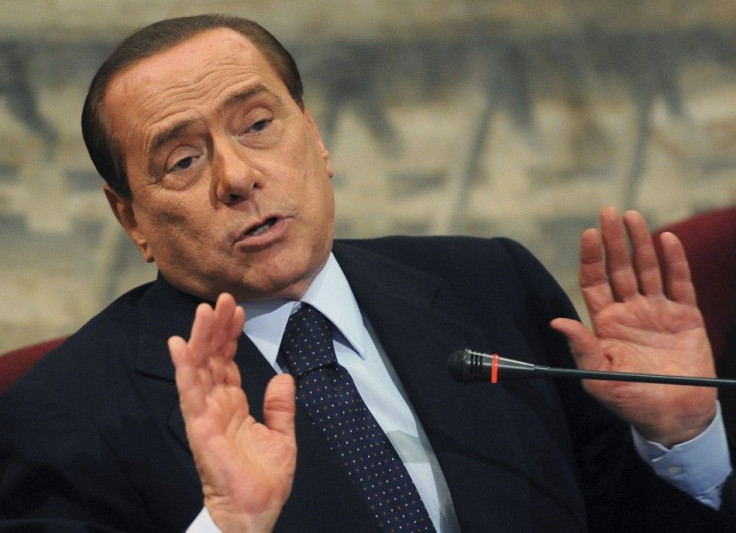Berlusconi Wins Budget Vote… Or Did He?

In a bizarre and confusing development, Italian Prime Minister Silvio Berlusconi has won a key budget vote in the Rome Parliament, however opposition leaders still claim that his People of Freedom party has lost its majority in the lower house.
BBC reported that Berlusconi received less than half the votes in the chamber.
The opposition party, which has been demanding that Berlusconi resign immediately, apparently abstained from the vote in order to show the Prime Minister he has lost significant support in the legislative body, according to a report in Reuters.
The Daily Telegraph reported that about 320 MPs abstained from voting (presumably all from opposition parties). A total of 308 MPs voted for the budget, well below the 316 needed for an absolute majority. No one voted against the budget.
The Telegraph is speculating that the opposition center-left Democratic Party may call for a confidence vote to test Berlusconi’s true magnitude of support and popularity.
Earlier, the leader of the Northern League Party, Umberto Bossi, a key coalition partner, urged Berlusconi to step down.
However, the Prime Minister has thus far refused to do so.
Ben May, European economist at Capital Economics in London, commented: “The [Italian] government’s victory in the parliamentary vote today does nothing to alter the view that Silvio Berlusconi’s days as Prime Minister are numbered. Although the Government won the vote, it failed to gain an absolute majority (it only won 308 of the 630 votes – 320 MPs did not take part), implying that, unless Berlusconi resigns, the government may soon face a confidence vote.”
May added: “The hope will be that Italy can quickly gain a new government with the stomach and the ability to implement major structural reforms. But this alone will not solve Italy’s woes. The recent run of weak economic data suggest that Italy will soon fall back into recession.”
May expects the Italian economy to contract by 1.3 percent or so next year and about 2 percent in 2013.
“Against this backdrop, the Government will struggle to balance its budget by 2013,” he said.
“What’s more, even if structural reforms are quickly implemented, it will still probably take a decade or more of wage and cost deflation for Italy to regain competitiveness within the euro-zone, implying that the economy may suffer another decade of near stagnation. Accordingly, unless the euro-zone is willing to provide Italy with years of expensive financial assistance, we think that Italy will eventually come under huge pressure to default, regardless of who is in power.”
© Copyright IBTimes 2024. All rights reserved.





















